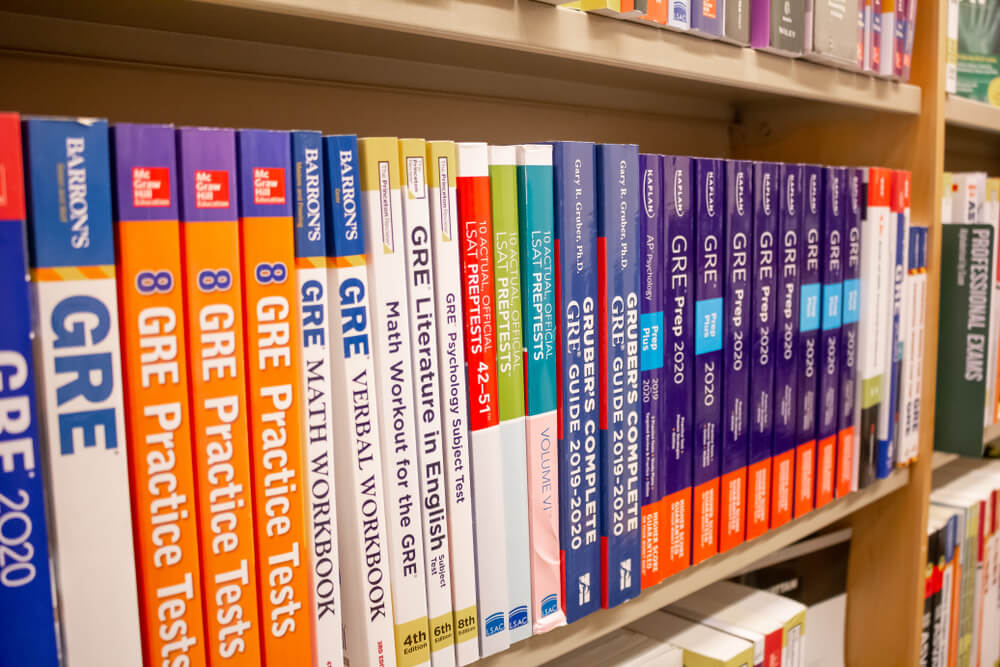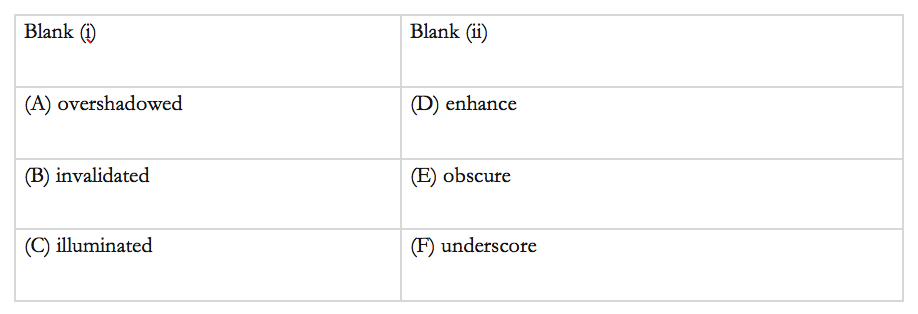 When I first approached GRE text completion questions, I did what came naturally to me and what has been reinforced by years of standardized testing: I read the question, read the possible answers, and decided which answer seemed most right using the tools in my toolbelt--process of elimination, logical deduction, and the like. Maybe, if I was working extra hard, I’d follow my dad’s age old advice of going back to double check my answers if I had extra time.
When I first approached GRE text completion questions, I did what came naturally to me and what has been reinforced by years of standardized testing: I read the question, read the possible answers, and decided which answer seemed most right using the tools in my toolbelt--process of elimination, logical deduction, and the like. Maybe, if I was working extra hard, I’d follow my dad’s age old advice of going back to double check my answers if I had extra time.
However, after many practice tests, my scores had started to plateau. I remembered something that I was taught during my time as a consultant with The Bridgespan Group - that the most efficient way to answer a question is to start with a hypothesis in mind. Using this mindset, I disrupted this age old process and started following these four steps, unlocking breakthrough results within this question type:
- Look at the question and physically cover the multiple choice options with a separate sheet of paper.
- Rework the sentence into my own words.
- Develop a hypothesis by asking, “How would I fill this in myself?”
- Read the answer choices and select the closest match.
(Side note here: as you may know, the GRE is a computerized test, so physically covering the results is harder on test day. But that didn’t stop me from holding up my hand to block part of the computer screen).
Consider this text completion practice question provided directly by ETS:
“From the outset, the concept of freedom of the seas from the proprietary claims of nations was challenged by a contrary notion — that of the _______ of the oceans for reasons of national security and profit.”
The sentence is basically saying that some people believe that nations shouldn’t be able to own the sea, while others believe in the _____ of oceans for security or profit. If I were to fill this in myself, the word “use” comes to mind--others believe in the use of oceans for security or for profit.
Now and only now, with this guess in mind, I take a look at the answer choices provided:
● Promotion
● Exploration
● Surveying
● Conservation
● Appropriation
Looking through these answers, the word appropriation, or taking something for your own objective, is clearly most similar to “use.”
This process also works when dealing with a question with multiple blanks. Here, consider the following example:
“It is refreshing to read a book about our planet by an author who does not allow facts to be (i)__________ by politics: well aware of the political disputes about the effects of human activities on climate and biodiversity, this author does not permit them to (ii)__________ his comprehensive description of what we know about our biosphere.”
In my own words, this means that this author doesn’t let politics (i) _____ facts and specifically doesn’t let the politics of climate change (ii) ______ his description of the biosphere. The words that come to mind for me here are “top” and “stop” - the author doesn’t let politics become more important than, or top, facts or stop him from telling the whole story about the biosphere.
Now, when I take a look at my answer choices, two pop out:

Overshadow is a fancy way of saying “top,” and obscure is a fancy way of saying “stop” or obstruct.
Using this method forced me to stop reacting to the answers provided and instead proactively use my own thinking to develop a hypothesis. In turn, sorting through the answer with a hypothesis in mind allowed me to jump past answer choices that were designed to trick or confuse me and easily identify the correct choice.
Comments